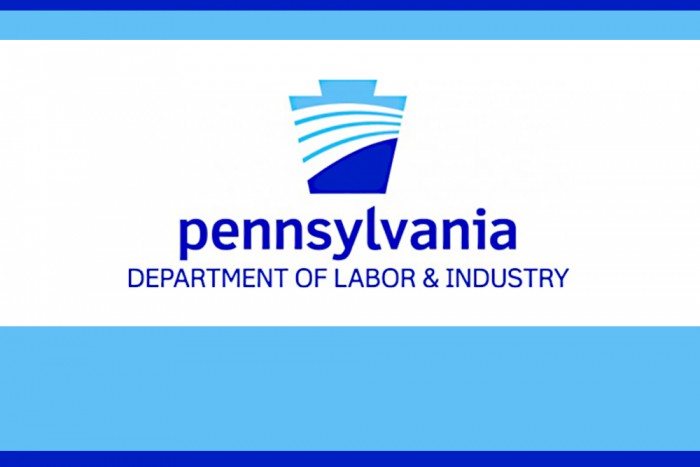Jack Phillips
Wolf Administration COVID-19 Announcements
Some PA Budget-Related Legislative Movement on Monday
The state Senate met in a voting session on Monday with the Senate Appropriations Committee and then the full Senate as well as the state House of Representatives’ Appropriations Committee advancing legislation that is expected to be part of the package of bills needed to complete Pennsylvania’s state budget of which there are still seven months for which to provide. Senate Bill 1350 is currently a supplemental appropriations bill for the 2020-2021 General Fund budget, a legislative vehicle that could be amended at some point – GOP staff remain hopeful that it will be this week – when budget conversations produce a final product. The bill was reported out of the House Appropriations Committee yesterday and has already had its first day of consideration by the full House, positioning it for potential amendment when the House is in voting session on Wednesday with the possibility of a final vote on Thursday. No solid details have emerged regarding the budget other than that it’s not likely to have too much additional spending beyond what was spent throughout the prior year given the state’s current fiscal situation due to COVID-19 and the mitigation policies pursued with the goal of slowing the spread of the virus. There could be some areas that see targeted spending cuts, though with the sizable amount of mandatory expenditures in Pennsylvania’s budget, areas that can be cut are limited.
Source: Capitolwire: Under The Dome, November 17, 2020
It’s Budget Week (Again). Here’s What You Need to Know.
Gov. Wolf Signs 12th Renewal of Opioid Disaster Declaration
Gov. Tom Wolf Announces Leadership Change at Dept. of Labor & Industry
House Republican Caucus Elects Leadership for 2021-2022 Session
On Tuesday, the Pennsylvania House Republican Caucus elected its legislative leaders for the 2021-2022 Legislative Session.
The Republican Leadership Team Consists of:
- Speaker-Designee Bryan Cutler (R-Lancaster);
- Majority Leader Kerry Benninghoff (R-Centre/Mifflin);
- Majority Whip Donna Oberlander (R-Clarion/Armstrong/Forest);
- Majority Appropriations Committee Chairman Stan Saylor (R-York);
- Majority Policy Committee Chairman Marty Causer (R-Cameron/McKean/Potter);
- Majority Caucus Chairman Mike Reese (R-Westmoreland/Somerset);
- Majority Caucus Secretary Martina White (R-Philadelphia); and
- Majority Caucus Administrator Kurt Masser (R-Northumberland/Columbia/Montour).
When the House reconvenes for the 2021-2022 legislative session, the Republicans will hold at least a 113-90 majority.
The State Senate will be convening today to elect their leadership for the 2021-2022 Legislative Session. In the State Senate, one state senate race is still to be determined.
Study Eyes Use of Closed PA State Hospitals as Drug Treatment Centers
By Robert Swift, Staff Writer, Capitolwire
HARRISBURG (Nov. 11) – Closed or downsized state hospitals, prisons, and centers for the intellectually disabled could potentially find new use as drug treatment centers according to a recent state legislative study.
The study by the Joint State Government Commission identifies more than 40 vacant state-owned sites across Pennsylvania.
The study was conducted amidst the backdrop of an ongoing opioid epidemic that led to 4,415 drug overdose deaths in 2018 and counts more than 287,000 Pennsylvanians struggling with a substance abuse (including alcohol) disorder.
The COVID-19 pandemic has created challenges for drug treatment providers who are trying to secure protective equipment, provide quarantine space, and practice social distancing in crowded shelters.
The places considered the “most suitable for use as drug treatment facilities are on the campuses of recently closed or unused buildings at still operational state hospitals, “ the commission study said.
Six state hospitals fall into this category. They are located at Clarks Summit, Lackawanna County; Wernersville, Berks County; Danville, Montour County; Torrance, Westmoreland County; Warren in Warren County; and Norristown in Montgomery County.
Clarks Summit has two vacant structures; Wernersville has three; Danville has eleven; Torrance has four; Warren has one, which is an unused greenhouse; and Norristown has eight.
“The primary advantage of repurposing state hospitals is that they are already located in areas ideally suited to provide medical care,” the study said.
Norristown State Hospital is cited as an example where a number of human service agencies already lease buildings on the grounds.
The state Department of General Services (DGS) leases space at Norristown to nine county-based providers for a combined rent of nearly $1.8 million annually. These include Carol’s Place, a short-term residential place for adults experiencing an acute psychiatric crisis; and Elwyn/New Beginnings, a residential treatment facility for adults.
A half-dozen non-profit and community organizations use space at Norristown rent- free.
Meanwhile, the study identified Summit Hall at Clarks Summit Hospital and the closed Hamburg Center in Berks County as suitable for conversion into drug treatment centers.
The closed Retreat State Correctional Institution in Luzerne County is also mentioned as a potential treatment center.
Retreat has a long history. It started out as a state hospital and then was converted into a state prison in the 1980s. Retreat’s closing was delayed for a number of months earlier this year while it was used as a COVID-19 quarantine center for new state inmates.
The corrections department is keeping minimal operations at Retreat in case it’s needed again during the pandemic.
The study also cautions that many factors are involved in determining whether a vacant state-owned building is suitable for a drug treatment center.
“There are no easy means to determine whether unused state property will be suitable for conversion into a drug treatment center,” it said.
The factors to be weighed include location relating to higher overdose rates, local zoning, a building’s physical condition, the capacity of existing utilities, level of community support, and an analysis of whether it’s more efficient to build a new facility than restore an older one.
The study offers several recommendations, including that the General Assembly consider selling, gifting, or renting state property for use as drug treatment centers on a case-by-case basis, that the Department of Drug and Alcohol Programs be the contact point for treatment providers interested in using vacant state land, and that DGS continues efforts to upgrade the state property inventory.
“While the report revealed the state lacks information about some of its properties, including their general condition and specific repairs, I’m heartened to learn there are former state hospitals, prisons, and centers for the intellectually disabled that could be repurposed to help those with substance abuse disorders,” said Rep. Jim Gregory, R-Blair, who sponsored the House resolution authorizing the study.
DOH Announces Week-Five Rapid Antigen Test Card Distributions
DDAP Announces SAMHSA Grant Opportunities
Application Due Date: Monday, January 4, 2021
The Substance Abuse and Mental Health Services Administration (SAMHSA) is accepting applications for the Statewide Family Network (SFN) grant program. The purpose of this program is to more effectively respond to the needs of children, youth, and young adults with serious emotional disturbances (SED) and their families by providing information, referrals, and support. The program will also create a mechanism for families to participate in state and local mental health services planning and policy development. This population of focus will hereafter be referred to as children and youth. SAMHSA expects that this program will be a catalyst for transforming mental health and related systems in the state by strengthening coalitions among family organizations and between family members, policy makers, and service providers.
SAMHSA plans to issue approximately 10 grants of up to $95,000 per year for up to three years.
Statewide Consumer Network Program
Application Due Date: Monday, January 4, 2021
SAMHSA is accepting applications for the Statewide Consumer Network (SCN) grant program. The purpose of this program is to improve efforts to address the needs of adults with serious mental illness (SMI) by developing and/or expanding peer support services, peer leadership, and peer engagement strategies statewide. The population of focus is adults with SMI, including those who are underserved and underrepresented (e.g. consumers from ethnic, racial, and cultural minority groups); veterans; individuals who are chronically homeless; individuals with co-occurring disorders (COD); sexual orientation and gender identity minorities; and individuals who have been involved in the criminal justice system. It is expected that this program will increase access to mental health services for adults with SMI. It will also increase the quality of these services, increase the sustainability of consumer-operated organizations, and enhance state capacity and infrastructure to support the recovery of adults with SMI and their families.
SAMHSA plans to issue up to 12 grants of up to $95,000 per year for up to three years.


















